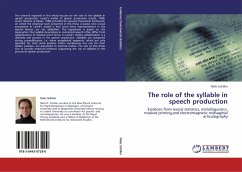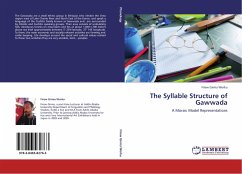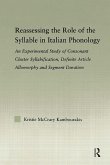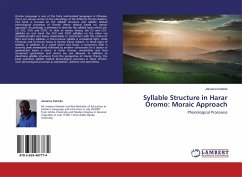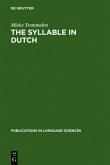The research reported in this thesis focuses on the role of the syllable in speech production. Levelt's model of speech production (Levelt, 1989; Levelt, Roelofs, & Meyer, 1999) provided the general theoretical framework on which the empirical work presented in this thesis is based. One crucial assumption in Levelt's model is that word form representations in the mental lexicon are not syllabified. This hypothesis is based on the observation that syllable boundaries in connected speech often differ from syllabifications of isolated word forms. In Levelt's model, syllabification is a relatively late process in the speech production. Syllables are computed during prosodification, i.e. when preselected segments, which are only specified for their serial position within morphemes but not for their syllabic position, are associated to metrical frames. The aim of this thesis was to provide empirical evidence supporting the use of syllables in the process of speech production.
Bitte wählen Sie Ihr Anliegen aus.
Rechnungen
Retourenschein anfordern
Bestellstatus
Storno

